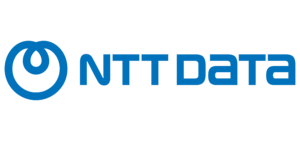
Boosting Productivity and Morale: How Comet Became Integral to NTT DATA Group's Workflow
NTT Data Group, a leading Japanese technology services and consulting company, helps its clients through digital and IT modernization, business process services, and managed services. Several years ago, they adopted Comet as their experiment management tool when they needed a solution that could scale with the increasing demands of their machine learning workload.
In this interview, Yoko Inaba, head of the Innovation Technology Department of NTT DATA Group, describes the integral role Comet plays in their machine learning tech stack and how it has directly impacted productivity and team morale.
Transcript
Could you please describe your role, your team and your objectives?
My name is Yoko Inaba and I head the Innovation Technology Department of NTT DATA Group. Our objective is to lead the global market in transforming cutting-edge technologies into tangible business value.
What AI use-cases are you working on?
We are working on use cases across a multitude of domains and technologies. One of our use cases involves using deep learning for the identification of medical conditions on medical imaging. Another example is the application of deep learning for the estimation of vegetation height in the proximity of high tension transmission lines. Those insights are later used to optimize a maintenance schedule.
Why did you choose Comet three years ago?
Three years ago we were engaged in numerous projects within the medical imaging domain, each characterized by distinct datasets, DNN architectures, and evaluation methods. As our training processes advanced, we faced a significant increase in historical results, each associated with unique parameters. Tracking and comparing these results to identify impactful parameters and plan our next steps became increasingly time-consuming. This challenge began to noticeably diminish our team’s productivity, affecting both project schedules and team morale. This motivated us to adopt Comet and we found it to be the ideal tool for addressing the challenges we had at that time. The adoption not only reversed the productivity decline but also led to its increase compared to productivity levels during periods of fewer projects.
What would have happened if your team didn’t have Comet over the past three years?
Without integrating Comet into our ML development process, we would have faced significant productivity challenges due to the increased complexity in managing and tracking models, reporting, and planning. Furthermore, we would have risked losing something we deeply value: our team’s enthusiasm for the ML projects we were executing.
One of your colleagues shared recently, “I can’t do ML anymore without Comet”. What do you think?
I agree. While we know the immense value brought to our development work by Comet, at the moment we also consider Comet sewn into our development process, and take it as a given. Eliminating Comet from our workflow would imply unsewing it from our well established development process, and it would definitely negatively impact our team’s work.
What is your vision of success using Comet in the coming years?
We think that Comet is going to be monumental in achieving our objective to be leaders in the global market, by continuing to support our ML development, which is and will continue being part of the cutting-edge technologies we are looking to turn into business value for our clients.
This interview was lightly edited for style.